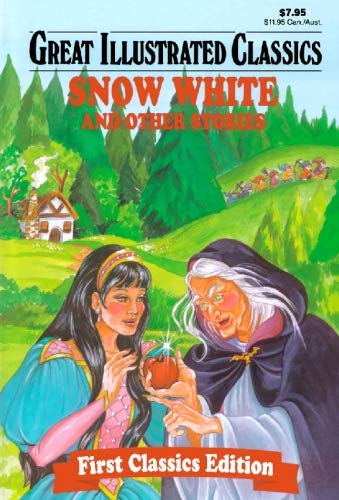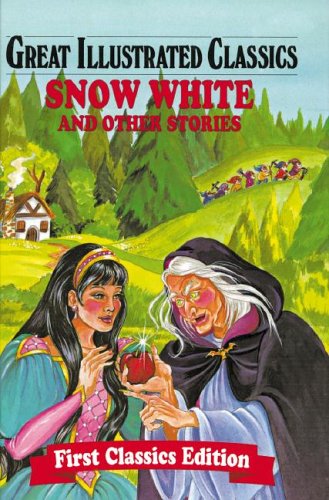-
A White Heron and Other Stories
Sarah Orne Jewett
eBook (Solis Press, May 14, 2013)Sarah Orne Jewett was born in Maine and lived there for much of her life. These surroundings are at the heart of her work, reflecting the landscape, characters, and even the dialects of the people that lived around her. The writing of Sarah Orne Jewett captures life at the end of the nineteenth century in the fading coastal towns and peaceful rural backwaters of the Northeastern United States. In a subtle combination of romance and realism, she not only celebrates the beauty of nature but also documents the hardship of life at that time. The stories provide colorful and touching insights into the world of her characters. A sound introduction into the work of a great chronicler of country life, this collection includes the following short stories:• A White Heron• The Gray Man• Farmer Finch• Marsh Rosemary• The Dulham Ladies• A Business Man• Mary and Martha• The News from Petersham• The Two BrownsThe book was first published in 1886 and has been completely reset and reformatted for this new edition.
-
Snow White and Other Stories
Jacob Grimm, Rebecca Burns, Wilhelm Grimm, Charles Perrault, Tantor Audio
Audible Audiobook (Tantor Audio, April 16, 2012)Collected and published by the Brothers Grimm in the early 1800s, "Snow White" is a classic and timeless tale. The jealous queen's multiple attempts to take the beautiful Snow White's life are foiled by the sympathetic dwarfs. Eventually, Snow White gets her happily ever after with the prince, while the queen receives her comeuppance. Included in this book are this and 20 more tales from the Grimm Brothers' collection and by Charles Perrault: "Cinderella", "Rumpelstiltskin", "The Fisherman and His Wife", "The Sleeping Beauty in the Wood", "Hans in Luck", "The Golden Bird", "Little Red Riding Hood", "King Thrushbeard", "Rapunzel", "The Fairies", "Hansel and Gretel", "The Galant Tailor", "Snow White and Rose Red", "The Raven", "The Brother and Sister", "Ricky of the Tuft", "The Twelve Brothers", "The Frog Prince", "Little Tom Thumb", and "The Golden Goose".
-
White Nights and Other Stories
Fyodor Dostoyevsky
eBook (Jovian Press, March 26, 2018)From the author of Crime and Punishment comes this remarkable collection of short fiction. A selection of ten compelling tales, steeped in Dostoyevsky's characteristic themes of spiritual torment and psychological struggle, evoke life in Czarist Russia. Featured stories include "The Dream of a Ridiculous Man," "Bobok," "An Honest Thief," "An Unpleasant Predicament," "Another Man's Wife," "The Peasant Marey," "The Crocodile," "A Faint Heart," "A Christmas Tree and a Wedding," and the title work. Fyodor Dostoyevsky (1821 - 1881) created powerful depictions of the human condition that led to significant developments in twentieth-century thought, including psychoanalysis and existentialism. His influence resonates in the works of latter-day authors such as Proust, Faulkner, Hemingway, and Kafka. This collection of his short stories offers thought-provoking glimpses into the Russian author's moving portrayals of the conflict between flesh and spirit.
-
A White Heron and Other Stories
Sarah Orne Jewett
Paperback (Dover Publications, July 2, 1999)Writing in wonderfully descriptive and fluent prose, Sarah Orne Jewett, best-known for The Country of the Pointed Firs, was early encouraged by her father to write not about things, but to "write the things themselves just as they are." That she did so is clearly evident in this collection of sensitively written stories, regional sketches that celebrate the past, full of clearly delineated characters and carefully detailed natural and domestic settings.Her luminous descriptions of the landscape are apparent in the title story, commonly regarded as her finest single tale. Other stories focus on the rural lives of elderly women and their attempts to live with dignity and security. In "The Town Poor," the characters are resilient in their poverty and compassionate towards those in need. Themes of female friendship in "The Dulham Ladies" and "Miss Tempy's Watchers" are characteristic. This volume also includes "The Foreigner," "Miss Peck's Promotion," "The Passing of Sister Barsett," "Miss Esther's Guest," "The Guests of Mrs. Timms," and "The Courting of Sister Wisby."Widely regarded as the most distinguished American regionalist writer of the 19th century, Sarah Orne Jewett has been rediscovered and acknowledged as an American master. This outstanding collection of her short fiction will delight students of literature and women's studies as well as general readers.
-
White Nights and Other Stories
Fyodor Dostoyevsky, S R P
Paperback (CreateSpace Independent Publishing Platform, Nov. 20, 2017)"White Nights" is a short story by Fyodor Dostoyevsky, originally published in 1848, early in the writer's career. Like many of Dostoyevsky's stories, "White Nights" is told in first person by a nameless narrator; the narrator is living in Saint Petersburg and suffers from loneliness. He gets to know and falls in love with a young woman, but the love remains unrequited as the woman misses her lover with whom she is finally reunited.
-
A White Heron and Other Stories
Sarah Orne Jewett
eBook (Dover Publications, )None
-
A White Heron and Other Stories
Sarah Orne Jewett
Paperback (Solis Press, April 15, 2013)Sarah Orne Jewett was born in Maine and lived there for much of her life. These surroundings are at the heart of her work, reflecting the landscape, characters, and even the dialects of the people that lived around her. The writing of Sarah Orne Jewett captures life at the end of the nineteenth century in the fading coastal towns and peaceful rural backwaters of the Northeastern United States. In a subtle combination of romance and realism, she not only celebrates the beauty of nature but also documents the hardship of life at that time. The stories provide colorful and touching insights into the world of her characters. A sound introduction into the work of a great chronicler of country life, this collection includes the following short stories: A White Heron The Gray Man Farmer Finch Marsh Rosemary The Dulham Ladies A Business Man Mary and Martha The News from Petersham The Two Browns The book was first published in 1886 and has been completely reset and reformatted for this new edition.
-
White Nights and Other Stories
Fyodor Dostoyevsky
Paperback (CreateSpace Independent Publishing Platform, April 23, 2016)It was a wonderful night, such a night as is only possible when we are young, dear reader. The sky was so starry, so bright that, looking at it, one could not help asking oneself whether ill-humoured and capricious people could live under such a sky. That is a youthful question too, dear reader, very youthful, but may the Lord put it more frequently into your heart!... Speaking of capricious and ill-humoured people, I cannot help recalling my moral condition all that day. From early morning I had been oppressed by a strange despondency. It suddenly seemed to me that I was lonely, that every one was forsaking me and going away from me. Of course, any one is entitled to ask who "every one" was. For though I had been living almost eight years in Petersburg I had hardly an acquaintance. But what did I want with acquaintances? I was acquainted with all Petersburg as it was; that was why I felt as though they were all deserting me when all Petersburg packed up and went to its summer villa.
-
Snow White and Other Stories
Rochelle Larkin
Paperback (Waldman Publishing Corp., Jan. 1, 2008)None
-
A Winter's Night and Other Stories
Premchand, Rakhshanda Jalil
language (Puffin, April 17, 2007)Ten classic stories from the master of Hindi literatureNearly a century after they were written, Premchand’s numerous short stories, novels and plays, written both in Hindi and Urdu, continue to be a mirror to Indian society and its traditions.A Winter’s Night and Other Stories brings together, for young readers, some of his most powerful short stories. This is a world inhabited by people like Halku, forced to spend the bitterly cold winter night in the open, without a blanket; Kaki, the old invalid aunt, ill-treated by her own relatives; and Shankar, reduced to being a bonded labour for the sake of a handful of wheat. Premchand describes their plights with unflinching honesty. Yet all is not hopeless in this world. There is also little Hamid, who buys tongs for his old grandmother rather than toys for himself; Ladli, who saves her share of puris for her blind aunt; and Big Brother, trying in vain to remember the strange names of English kings and queens.Greed, dishonesty, cruelty abound in this world, as do kindness, bravery and humour. These ten stories are an ideal introduction to Premchand and his concerns and ideas that remain relevant to this day.
-
A white heron, and other stories
Sarah Orne Jewett
Paperback (CreateSpace Independent Publishing Platform, Sept. 21, 2017)Sarah Orne Jewett (September 3, 1849 – June 24, 1909) was an American novelist, short story writer and poet, best known for her local color works set along or near the southern seacoast of Maine. Jewett is recognized as an important practitioner of American literary regionalism. Jewett's family had been residents of New England for many generations, and Sarah Orne Jewett was born in South Berwick, Maine.Her father was a doctor specializing in "obstetrics and diseases of women and children." and Jewett often accompanied him on his rounds, becoming acquainted with the sights and sounds of her native land and its people.As treatment for rheumatoid arthritis, a condition that developed in early childhood, Jewett was sent on frequent walks and through them also developed a love of nature. In later life, Jewett often visited Boston, where she was acquainted with many of the most influential literary figures of her day; but she always returned to South Berwick, small seaports near which were the inspiration for the towns of "Deephaven" and "Dunnet Landing" in her stories. Jewett was educated at Miss Olive Rayne's school and then at Berwick Academy, graduating in 1866. She supplemented her education through an extensive family library. Jewett was "never overtly religious," but after she joined the Episcopal church in 1871, she explored less conventional religious ideas. For example, her friendship with Harvard law professor Theophilus Parsons stimulated an interest in the teachings of Emanuel Swedenborg, an eighteenth-century Swedish scientist and theologian, who believed that the Divine "was present in innumerable, joined forms — a concept underlying Jewett's belief in individual responsibility." She published her first important story in the Atlantic Monthly at age 19, and her reputation grew throughout the 1870s and 1880s. Her literary importance arises from her careful, if subdued, vignettes of country life that reflect a contemporary interest in local color rather than plot. Jewett possessed a keen descriptive gift that William Dean Howells called "an uncommon feeling for talk — I hear your people." Jewett made her reputation with the novella The Country of the Pointed Firs (1896).A Country Doctor (1884), a novel reflecting her father and her early ambitions for a medical career, and A White Heron (1886), a collection of short stories are among her finest work. Some of Jewett's poetry was collected in Verses (1916), and she also wrote three children's books. Willa Cather described Jewett as a significant influence on her development as a writer, and "feminist critics have since championed her writing for its rich account of women's lives and voices."...............
-
Snow White & Other Stories
Rochelle Larkin
Library Binding (Spotlight, March 1, 2005)Presents fifteen classic stories, including "The Three Little Pigs," "The Little Red Hen," and "The Evil Enchanter." Q
Q